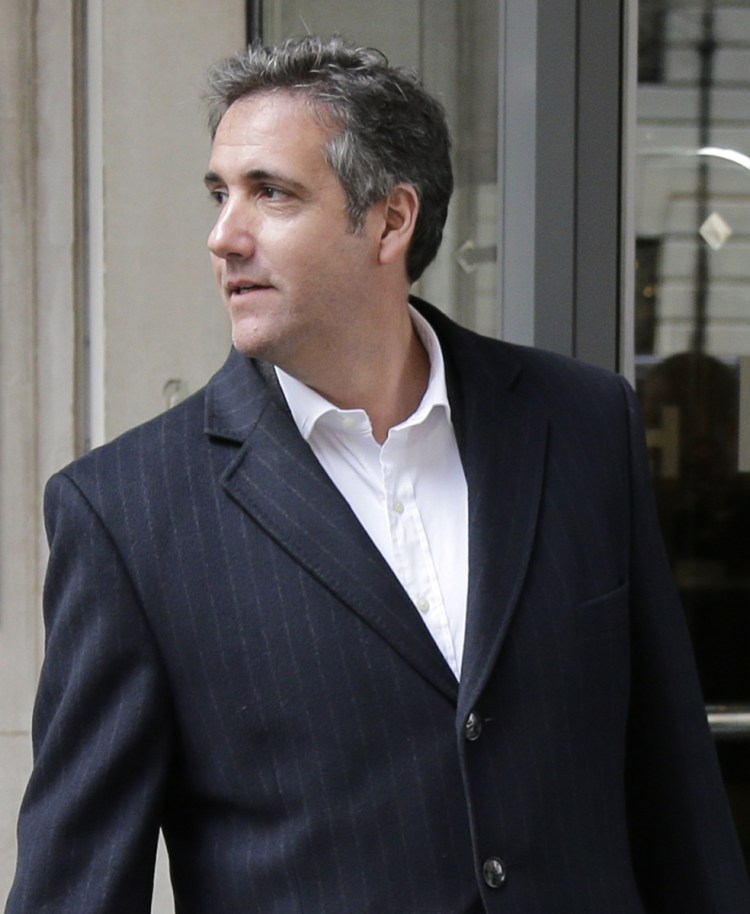President Trump’s personal attorney Michael Cohen sometimes taped conversations with associates, according to three people familiar with his practice, and allies of the president are worried that the recordings were seized by federal investigators in a raid of Cohen’s office and residences this week.
Cohen, who served for a decade as a lawyer at the Trump Organization and is a close confidant of Trump, was known to store the conversations using digital files and then replay them for colleagues, according to people who have interacted with him.
“We heard he had some proclivity to make tapes,” said one Trump adviser, who spoke on the condition of anonymity because of the ongoing investigation. “Now we are wondering, who did he tape? Did he store those someplace where they were actually seized? … Did they find his recordings?”
Cohen did not respond to requests for comment. Stephen Ryan, an attorney for Cohen, declined to comment. A White House spokeswoman referred a request for comment to Cohen and his attorney.
On Monday, FBI agents seized Cohen’s computers and phones as they executed a search warrant that sought, among other records, all communications between the lawyer and Trump and campaign aides about “potential sources of negative publicity” in the lead-up to the 2016 election, The Washington Post reported.
Investigators were also looking for any records related to adult-film star Stormy Daniels and ex-Playboy model Karen McDougal, who both received payments after alleged affairs with Trump.
It is unknown whether Cohen taped conversations between himself and Trump. But two people familiar with Cohen’s practices said he recorded both business and political conversations. One associate said Trump knew of Cohen’s practice because the attorney would often play him recordings Cohen had made of his conversations with other top Trump advisers.
“It was his standard practice to do it,” this person said.
Legal experts said Cohen’s taped conversations would be viewed by prosecutors as highly valuable.
“If you are looking for evidence, you can’t do any better than people talking on tape,” said Nick Akerman, a former Watergate prosecutor.
Such recordings “would be considered a gold mine,” said Stephen Gillers, a law professor at New York University who specializes in legal ethics.
“The significance is 9.5 to 10 on a 10-point scale,” he added, noting that investigators know “that when people speak on the phone, they are not guarded. They don’t imagine that the conversation will surface.”
Federal investigators would not automatically get access to any tapes that might have been seized in the raids. The recordings would first be reviewed by a separate Justice Department team to protect lawyer-client privilege, among other things.
Send questions/comments to the editors.



Comments are no longer available on this story